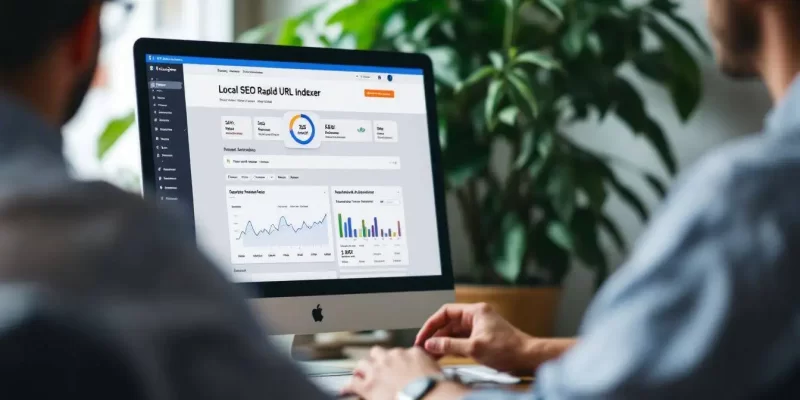If a business opens and nobody hears it, does it make a sale?
Probably not.
You can sell the finest sock-repair service on this side of the Thames, but if no one can find you, you’re just a lonely weaver shouting into the wind.
Welcome to the intriguing world of local SEO. It’s not magic. It’s not even particularly clever. But it does decide whether your business turns up on the first page of Google—or on page seven, next to an ad for Egyptian toothpicks.
And no one clicks on page seven.
The Great Google Sorting Hat
Local SEO is Google’s way of deciding who gets seen. Not who’s best. Not who’s worked the hardest. Just who’s ticked the right boxes.
Imagine you’re hungry and type in “fish and chips near me.” You’re not looking for a philosophical essay on haddock. You want food. Now. Preferably within walking distance.
Google doesn’t want to disappoint you. So it does what it does best: guess.
It looks at signals. Signals like:
- Where you are
- What you searched
- Whether the local chippy remembered to tell Google they are a chippy
- Whether they’ve collected reviews from actual people and not cousins with fake email addresses
- Whether their website looks like it was built after the invention of the smartphone
If the clues all point the right way, the chippy shows up. If not, the one three miles away with a functioning website and a profile set up by a professional marketing consultant with five reviews from happy clients might just win.
What Local SEO Actually Is
Think of it as online signposting.
Google doesn’t read minds. It reads patterns. If your business doesn’t mention your town, it won’t know where you are. If your phone number is different in three places, Google panics. If your website loads like it’s written in steam, Google shrugs and picks someone else.
Here’s what you need:
- A Google Business Profile (it’s free and people still don’t use it)
- The same name, phone number and address everywhere
- A website that loads quicker than an old fax machine
- Local reviews from people who’ve actually used your service
- Pages that mention your town, your service, and the words people type when they’re in a rush
And no, “we offer personalised solutions tailored to your needs” won’t help. Be direct. Say you fix broken boilers in Reading. Say it a lot.
Why Local SEO Is Often Ignored (and Why That’s a Mistake)
Small businesses have a habit of treating SEO like a troublesome uncle. Everyone knows he’s there, but no one wants to deal with him.
They think:
“I’ve got a website. That’s enough.”
“It’s word of mouth that matters.”
“My cousin said Facebook was better.”
Meanwhile, the plumber up the road is getting ten leads a day because he bothered to write “emergency plumbing in Swindon” on his homepage. Twice.
Local SEO isn’t flashy. It’s not a TikTok trend. But it works.
If you’re not showing up when someone types what you do and where you do it, you’ve already lost. The sale went to someone else. Probably someone with a blurry photo and a better listing.
The Illusion of the Big Budget
Here’s the funny part. You don’t need to spend thousands. You just need to be clear.
- Use plain words.
- List your services.
- Write about local topics.
- Fix your broken links.
- Ask happy clients for reviews.
Most of your competition won’t bother. That’s your chance.
Local SEO rewards the business that turns up. Like an old friend with biscuits.
The Danger of Getting Forgotten
The world doesn’t wait. Not for you. Not for anyone.
Your shop might be two streets away from someone searching. But if you haven’t told Google, it might as well be on Mars.
People won’t scroll. They won’t search harder. They’ll click the first link that looks decent.
If that’s not you, you’ve lost. Quietly. Without knowing.
So What Now?
Don’t write a plan that gathers dust. Don’t ask your mate who “did a bit of SEO once.”
Do this:
- Fix your listings
- Add proper local words to your website
- Get your reviews sorted
- Say what you do and where, in plain English
Then let Google do the rest. It’s not fair. But it is how it works.
Get found. Or get forgotten. It’s your call.
